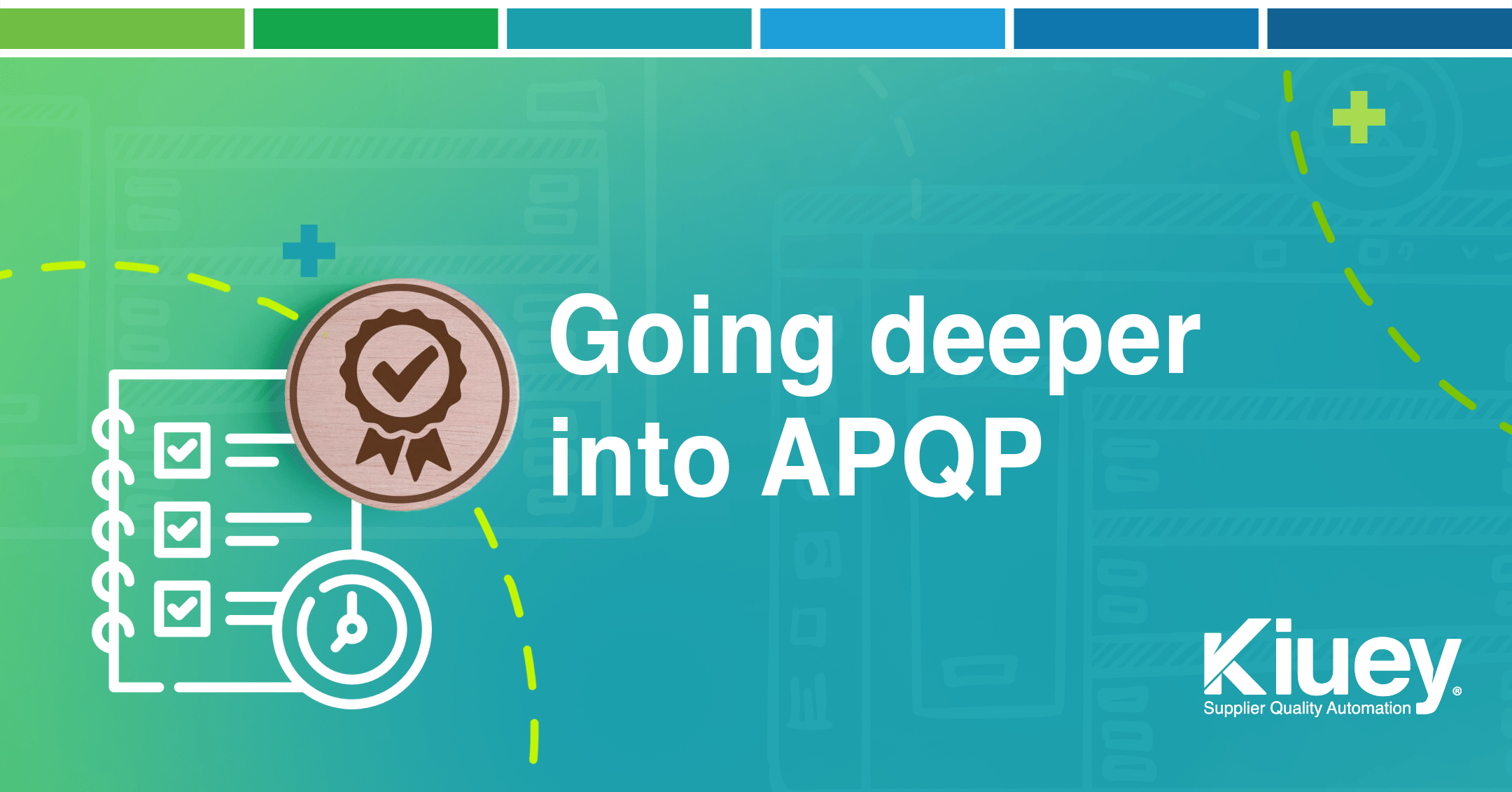
April 13, 2024
In today’s competitive landscape, delivering high-quality products consistently is paramount for supplier success. Advanced Product Quality Planning (APQP) emerges as a powerful tool for supplier quality engineers (SQEs) to navigate the intricate process of product development and ensure seamless integration with customer requirements. This article delves into the core principles and key understanding points of understanding what is APQP, equipping SQEs with the knowledge to become valuable partners in the quality journey.
Understanding what is APQP and its Landscape
Developed by the Automotive Industry Action Group (AIAG), APQP is a structured methodology for proactive quality planning throughout the product development cycle. It transcends a mere checklist, fostering a collaborative environment between suppliers and customers. By implementing APQP, SQEs can:
- Proactively Mitigate Risk: APQP emphasizes risk assessment at each stage, identifying potential issues early and enabling the development of preventative measures. This minimizes the likelihood of costly production errors and rework.
- Align with Customer Expectations: Effective APQP translates the “Voice of the Customer” (VOC) into concrete specifications and control plans. This ensures the final product not only meets functional requirements but also aligns with customer expectations for quality and performance.
- Drive Continuous Improvement: APQP is a cyclical process that encourages ongoing communication and refinement. By analyzing data and feedback throughout the product lifecycle, SQEs can identify areas for improvement and implement changes that enhance future product quality.
APQP Core Elements
APQP comprises five core elements, each playing a crucial role in achieving quality excellence:
- Advanced Product Quality Planning (APQP Planning and Control): This initial phase lays the groundwork for successful APQP implementation. It involves establishing a cross-functional team, defining project timelines, and outlining communication protocols with the customer. The APQP plan becomes the roadmap for the entire process.
- Product and Process Design and Development (PD&D): This phase focuses on translating customer requirements into detailed product specifications and defining the manufacturing processes needed to achieve those specifications. SQEs play a vital role in reviewing design FMEAs (Failure Mode and Effects Analysis) and ensuring control plans address potential failure modes.
- Product and Process Validation (P&PV): Validation confirms that the designed product and its manufacturing process can consistently deliver the desired outputs. SQEs work closely with the production team to conduct trials, monitor key characteristics, and ensure process capability meets customer expectations.
- Production Run Approval Process (PPAP): PPAP submission serves as the official documentation of the supplier’s readiness for production. SQEs are responsible for compiling and submitting this comprehensive package, which includes design records, control plans, and process capability studies.
- Control Plan: The control plan acts as the operational backbone of APQP. It outlines the specific characteristics to be monitored during production, the methods of measurement, and the acceptable ranges for each characteristic. SQEs actively participate in developing and maintaining these control plans, ensuring they are effective in preventing quality issues.
SQE’s Role in the APQP Ecosystem
As guardians of quality, SQEs play a pivotal role throughout the APQP process:
- Facilitating Cross-Functional Collaboration: SQEs act as bridges between internal departments (engineering, production, quality) and the customer. They effectively communicate project requirements, ensuring everyone is aligned with quality objectives.
- Steering Risk Assessment and Mitigation: SQEs are adept at identifying potential quality issues through techniques like FMEA. They actively participate in developing robust control plans that address these risks and prevent defects from occurring.
- Data Analysis and Improvement Initiatives: SQEs analyze data collected during production trials and monitor ongoing control plan data. By identifying trends and deviations, they contribute to continuous improvement efforts, ensuring consistent quality throughout the product lifecycle.
- PPAP Preparation and Submission: SQEs compile the PPAP documentation, ensuring it accurately reflects the supplier’s capabilities and production readiness. Effective communication with the customer throughout this process is key.
Embracing the APQP Mindset
While understanding the core elements of APQP is essential, SQEs who excel embrace a broader philosophy. They shift from reactive firefighting to proactive problem-solving, allowing them to anticipate and address potential issues before they escalate into major roadblocks.
That intrinsically leaves to a data data-driven decision making mindset. APQP emphasizes data analysis to drive informed decisions, so SQEs learn to leverage statistical tools and process control techniques to continuously monitor and improve quality performance. Eventually, that delivers in better and stronger communication skills – they learn to clearly articulate quality expectations, keep customers informed of progress, and address any concerns promptly.
In conclusion, by mastering APQP, SQEs transform from quality gatekeepers to strategic partners, contributing significantly to supplier success.
Let's talk to see how PPAP Manager can help your company to save time and money.


